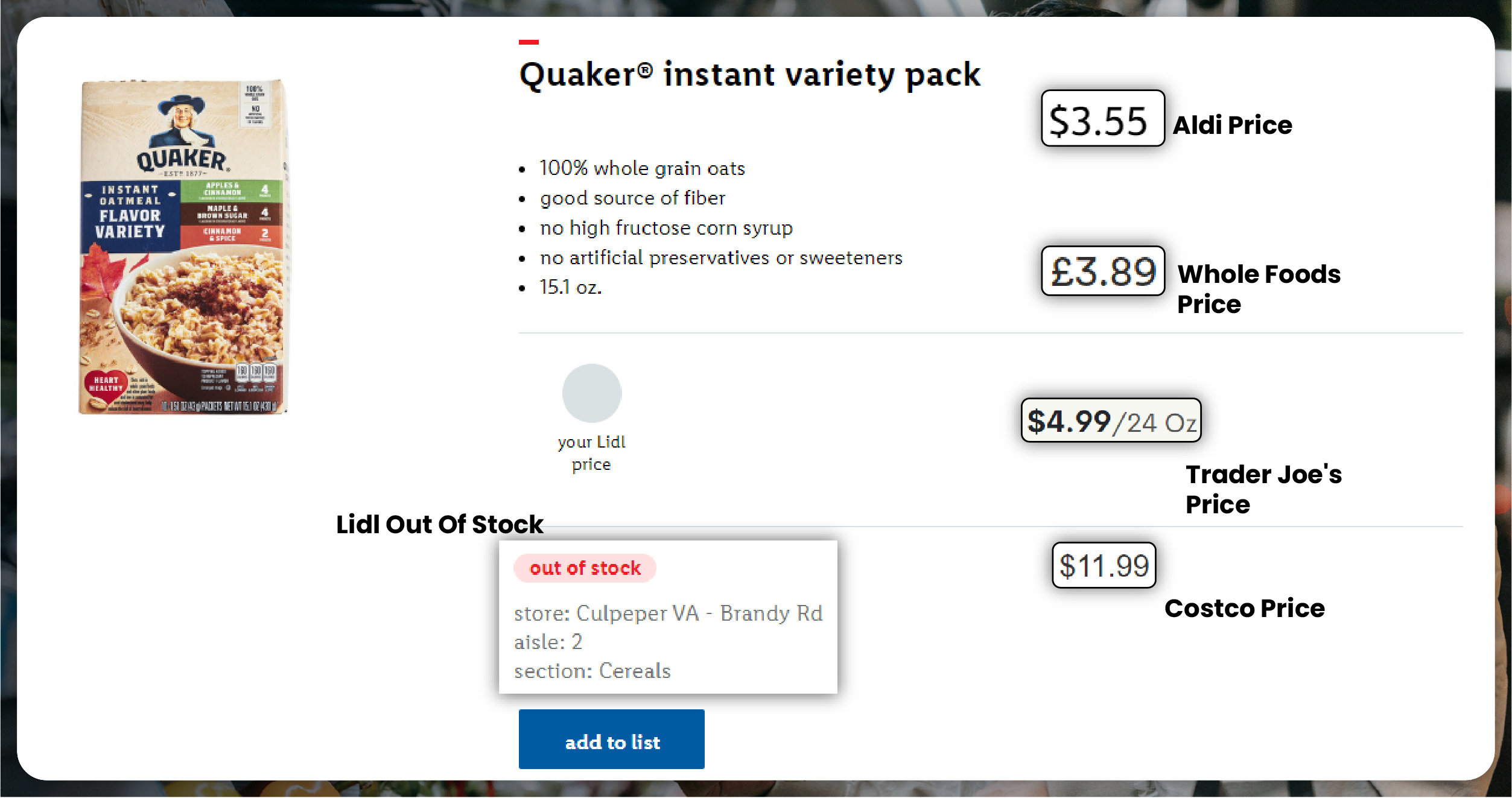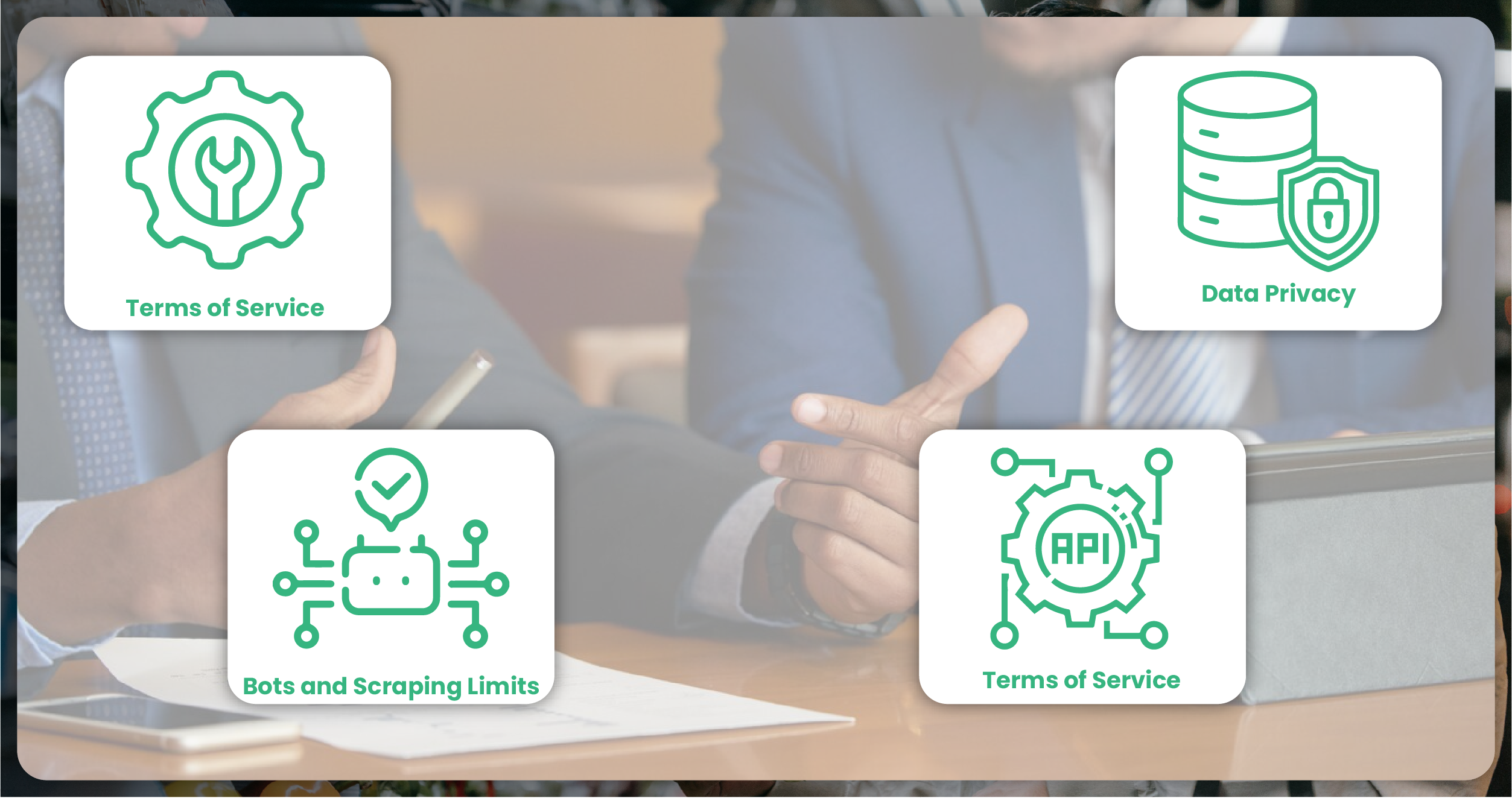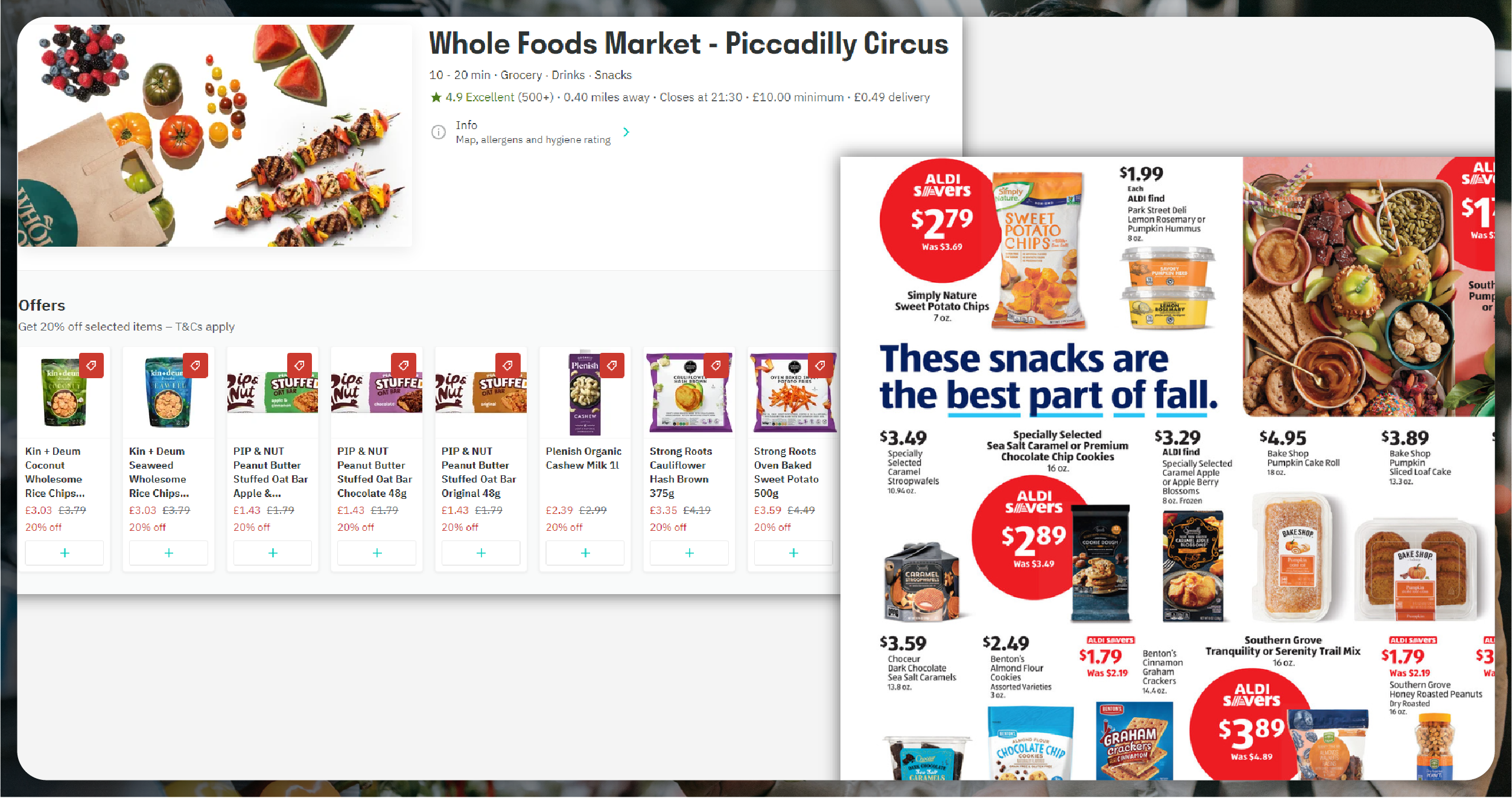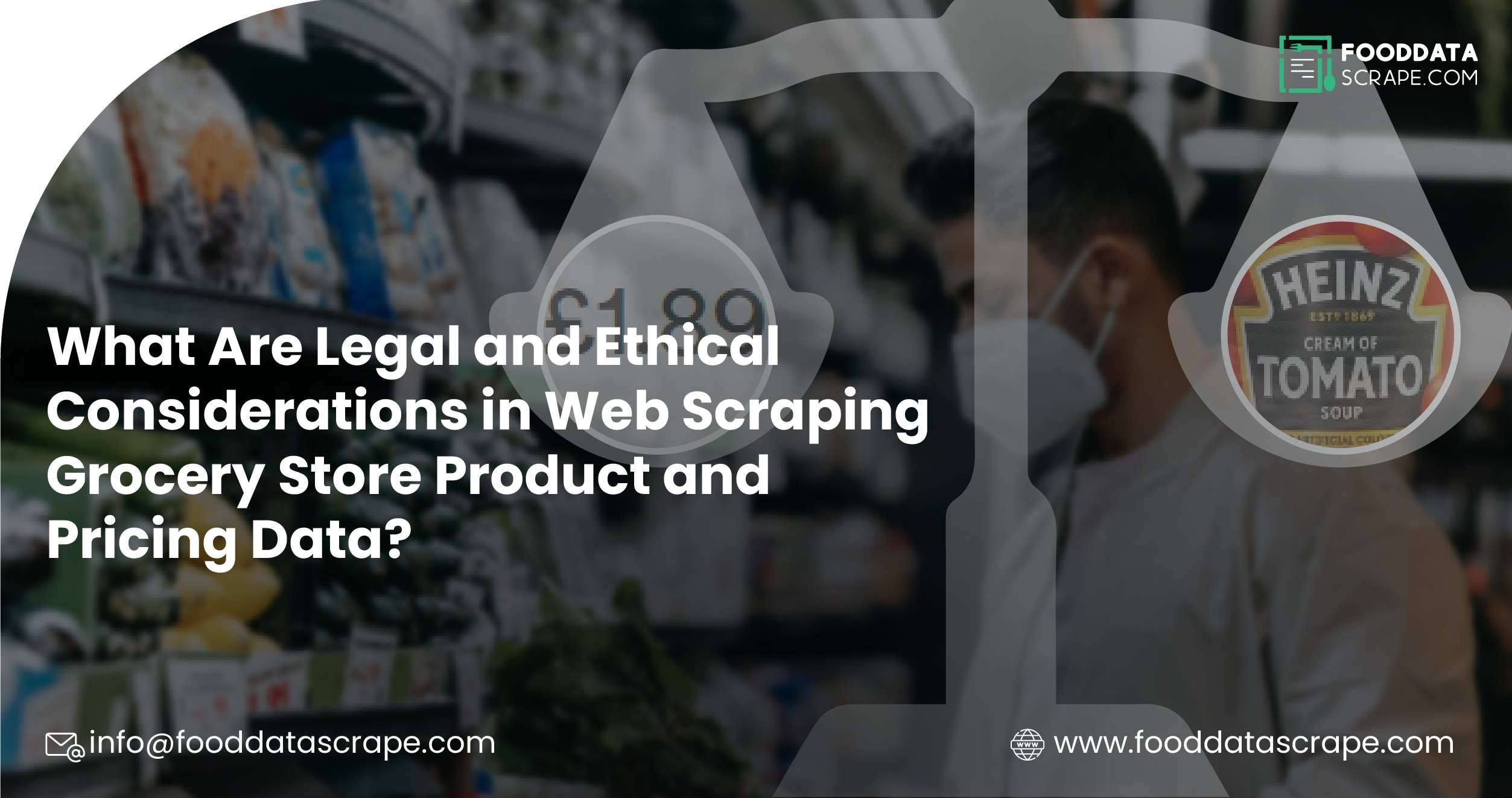In today's competitive retail environment, understanding present market trends and consumer preferences is essential. Leading contributors to decision-making about shopping patterns in the United States and worldwide include Publix, Whole Foods, Trader Joe's, Kroger, Lidl, Costco, and Aldi. Access to web scraping grocery store product and pricing data offers businesses information that could include products being sold, pricing models, and performance in each store, which helps them gain a competitive advantage in the market.
A firm's ability to price its products more optimally, monitor competitors' prices, and provide market trend predictions makes grocery store product and pricing data scraping a powerful tool. For a consumer, data scraping offers real-time price comparison and availability information—a valuable tool to ensure that a shopper always has his desired product.
This article explains how extracting grocery store product and price data from these major retailers may be a great benefit not only for businesses but also for consumers and researchers. It addresses the legality and ethics of web scraping.
The Importance of Scraping Retailer Data

Among the big industry players are Publix, Whole Foods, Trader Joe's, Kroger, Lidl, Costco, and Aldi, whose pricing, product availability, and store trends significantly impact consumer choice. These insights can be converted into better business strategies, price competitiveness, and customer satisfaction. Here are just some of the benefits of grocery product and pricing data extraction:
1. Competitive Analysis: For an organization, scraping grocery store products and pricing information is crucial to determine dynamic pricing strategies to stay up and competitive in the market.
2. Market Research: Extract supermarket price data on items and retail prices from various retailers for in-depth market analysis. It can provide insights on trends such as consumer preferences for organic food, specific brands, or seasonal items.
3. Inventory Optimization: Grocery and supermarket data scraping services would make analysis based on multiple retailers possible. This would enable organizations to know which products often appear on the list of items out of stock or in high demand, hence aiding the optimization of their supply chain and inventory management.
4. Personalized Shopping: Scrape supermarket store pricing information to enable consumers to use apps or websites that provide price comparison capabilities and point them toward the best available deals for their favorite products from major retailers.
Data Types You Can Scrape from Major Retailers

The essential data types that businesses or data scientists can scrape data from online grocery store include:
1. Product Information
Web scraping can collect detailed product data, including:
- Product Name: Accurate product titles and descriptions.
- Brand: Information on the manufacturer or brand of the product.
- Category: Classification of the product, such as "organic," "frozen," "dairy," etc.
- Ingredients and Nutritional Information: Especially relevant for health-conscious consumers.
For example, web scraping grocery product and pricing info can provide insights into their organic and premium offerings, which attract health-conscious consumers. On the other hand, grocery store product and pricing scraping offers competitive pricing for private label products, appealing to budget-conscious shoppers.
2. Pricing Data
Price is a critical factor for most consumers, and web scraping grocery prices from retailers help track:
- Base Prices: The listed price for each product.
- Discounts: Temporary promotions, coupons, or loyalty-based discounts.
- Price Trends: Historical price data to identify trends or fluctuations.
For instance, Trader Joe's is known for its unique product selection and relatively stable pricing. Grocery app data scraping services can help businesses understand how often and to what extent Trader Joe's adjusts its prices relative to competitors like Kroger or Costco, where pricing varies more dynamically.
3. Store-Specific Data
Retailers often list store-specific data such as:
- Inventory Availability: Extract grocery store data to collect information about whether a product is in or out of stock at specific locations.
- Store Location Data: Information about store locations can help businesses plan logistics and supply chains.
- Delivery and Pickup Options: Some retailers, like Kroger and Publix, offer delivery or curbside pickup. Scraping this data helps understand the extent and quality of these services.
By web scraping supermarket websites for store-specific data, businesses can gain insights into how retailers manage product availability and adapt to local demand.
4. Customer Reviews and Ratings
Many online retailers, including Whole Foods, Costco, and Aldi, allow customers to leave product reviews and ratings. Web scraping quick commerce data from these retailers provides:
- Consumer Sentiment: Analyzing the language used in reviews can reveal consumer sentiment toward specific products or brands.
- Ratings: Numerical ratings help assess the popularity or quality of a product.
- Review Trends: Tracking review trends over time can reveal shifts in consumer opinion.
Collecting customer reviews and ratings using supermarket grocery data scraping gives valuable feedback on product performance and helps businesses tailor their product offerings to meet consumer demands better.
Legal and Ethical Considerations

While generating potentially rich datasets with web scraping grocery store product and pricing data, one should be made aware of legal and ethical concerns:
1. Terms of Service: While performing grocery store pricing data scraping, it always pays to check out a retailer's terms of service. Many retailers have strict terms of service forbidding any web scraping. That may involve legal liabilities if you violate the terms of service.
2. Bots and Scraping Limits: Certain websites deploy bots or anti-scraping tools, such as CAPTCHAs, to thwart scraping attempts. Avoid scraping aggressively that may threaten a retailer's website.
3. Data Privacy: Scraping sensitive customer data without permission is unethical and illegal. Always be sure that you are scraping information that is accessible to everyone.
4. Using API: As much as possible, it is important to use the public APIs that companies like Publix and Kroger, which sell groceries, offer so that data is accessed in a controlled and legal environment.
Benefits of Scraping Product, Pricing, and Store Data

Scraping product, pricing, and store data from significant retailers helps businesses and consumers by offering value insights into market trends, the responsiveness of competitive prices, and potential access to products. Grocery store pricing data extraction allows companies to choose the best direction for adjusting pricing strategies, optimizing the stock level, and enhancing market research. The quick commerce grocery dataset also enhances consumers' real-time decision-making, and grocery pricing data intelligence equips consumers with the ability to look for the best deals to ensure smarter and better shopping choices.
1. Dynamic Pricing Strategies: Scrape grocery delivery app data to capture valuable insights into how dynamically they change their prices compared to their competitors to remain competitive and generate maximum profit margins.
2. Inventory Management: Grocery app data scraping services allow businesses to predict which products will go out of stock and thus help in planning ahead. This is very useful when the industry mainly deals with seasonal demands that increase fluctuations in stock levels.
3. Market Segmentation: Aldi, Costco, and Whole Foods cater to different markets. By web scraping supermarket websites for product prices, a business can distinguish the disparity in patterns and preference curves of various demographics, which will help refine product marketing strategies.
4. Better Customer Experience: The value of such tools based on scraped data lies in providing price comparisons or alerting consumers of special promotions. Grocery Price Dashboard can help consumers understand their product trends across retailers and make better purchasing decisions.
Conclusion:
The information retrieved by web scraping product prices from supermarket websites can benefit businesses and consumers. This practice will be used for competitive analysis, market research, or even to improve shopping experiences; it opens the door to a treasure trove of actionable information. It is, therefore, done with ethical responsibility and careful adherence to legal guidelines. This would be beneficial to gather retailer information, hence improving business decisions over the steps that should be undertaken, competitive pricing, and consumer satisfaction with the right tools and grocery delivery scraping API.
Are you in need of high-class scraping services? Food Data Scrape should be your first point of call. We are undoubtedly the best in Food Data Aggregator and Mobile Grocery App Scraping service and we render impeccable data insights and analytics for strategic decision-making. With a legacy of excellence as our backbone, we help companies become data-driven, fueling their development. Please take advantage of our tailored solutions that will add value to your business. Contact us today to unlock the value of your data.






























































































